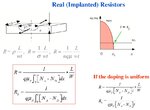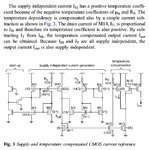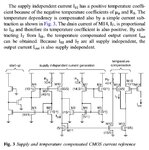sys_eng
Full Member level 4
How would temperature affect current flow in resistor?
Would temp increases current flow in resistor?
Some say for conductor , increasing temp will increase resistance and for insulator , increasing temp will decrease resistance.
So, resistor is more of a insulator, right? Increased temp will decrease resistance and therefore more current flow.
But the resistance formula shows increasing temp would reduce electron mobility therefore increase resistance.
I am hearing two conflict views
Would temp increases current flow in resistor?
Some say for conductor , increasing temp will increase resistance and for insulator , increasing temp will decrease resistance.
So, resistor is more of a insulator, right? Increased temp will decrease resistance and therefore more current flow.
But the resistance formula shows increasing temp would reduce electron mobility therefore increase resistance.
I am hearing two conflict views




